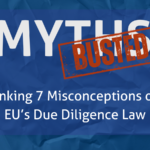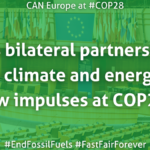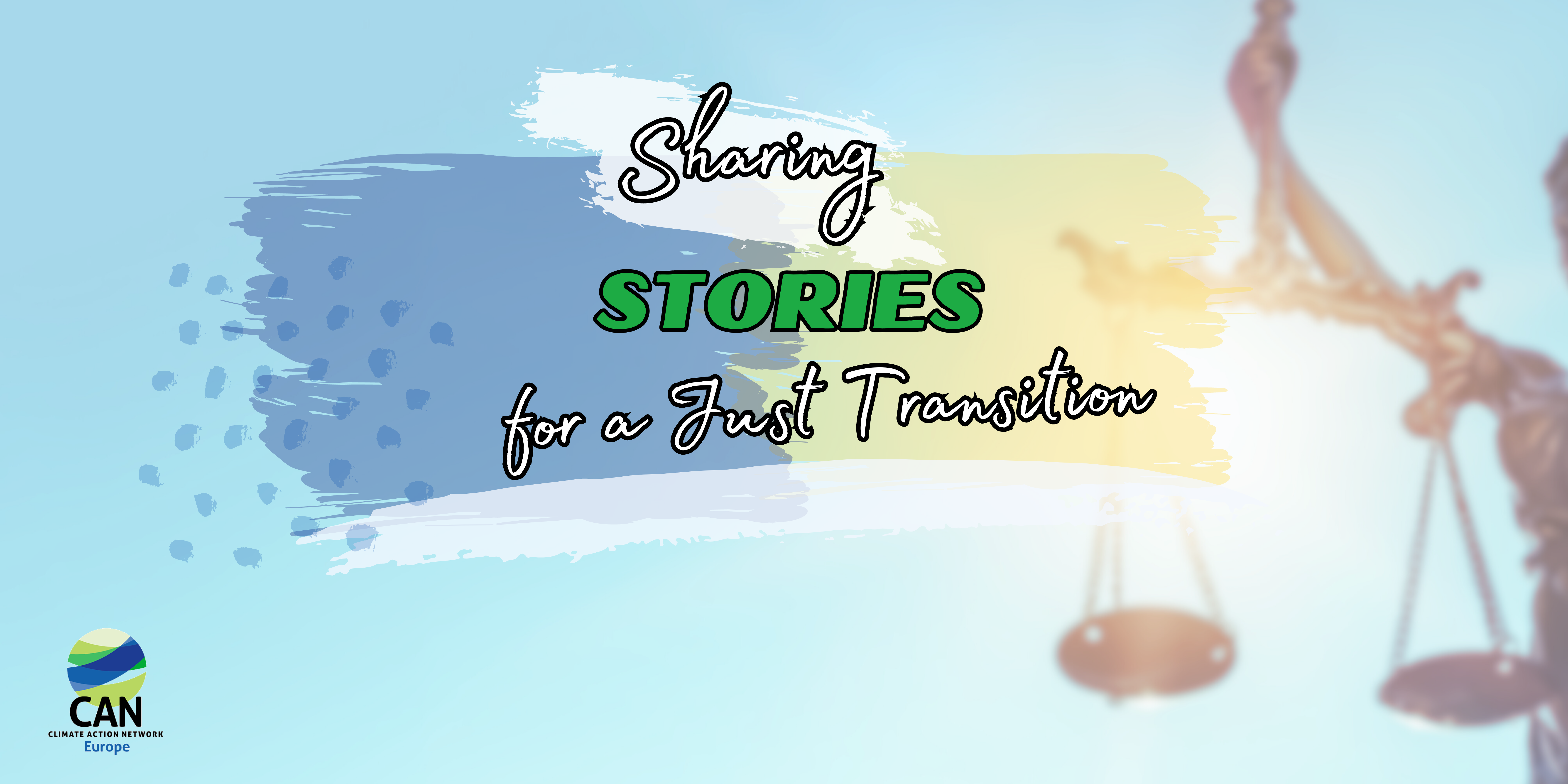Much business was left unfinished at the last Ministerial Council(2) of the Energy Community, the international treaty aiming to integrate the energy markets of the EU and its neighbours. This was due to political circumstances that led to limited participation of the member countries, the so-called contracting parties(3). Yet, the Energy Community is making an effort to move the energy transition forward to our shared objective of climate neutrality, writes Viktor Berishaj, Energy Policy Coordinator for Southeast Europe at Climate Action Network (CAN) Europe.
Treaty amendments
The recent publication of the annual Implementation report by the Treaty’s Secretariat in Vienna was met by civil society organizations’ (CSOs) opinion that there still is a huge gap to be filled in compliance with the Treaty acquis(4).
Hence, the attention of this year’s 18th Ministerial Council, the treaty’s highest governing body, falls yet again on treaty amendments, proposed among others by CSOs(5) to tackle the lack of impactful compliance and enforcement mechanisms.
Financial penalties for the contracting parties who breach the acquis of the Energy Community were always considered a useful tool by many, but there seemed not to exist a will to actually find a way to apply them. This era looks like it is coming to an end, given the conclusions of the Permanent High-Level Group (PHLG)(6) (7), which suggest that there shall be a transitional period of one year for the contracting parties to prepare for the introduction of financial penalties for breaches of the Treaty.
The level of financial penalties for non-compliance is still unknown. The Ministerial Council will, indeed, discuss methods for calculating such penalties. Whatever the outcome, the penalties should match the seriousness of violation, so as to incentivise compliance. Otherwise, they bring into question the Treaty’s very purpose.
Green Deal for the Energy Community
The climate talk in the Western Balkans this year seems to have picked up the pace. It was a year ago when the President of the European Commission Ursula von der Leyen introduced the European Green Deal and gave a hint of a similar deal for future membership hopefuls, namely the Green Agenda for the Western Balkans. This Agenda was finally presented on October 6 this year, as an annex to the Economic and Investment Plan for the Western Balkans(8).
Whilst there are many things left to be addressed, one thing is for certain, the decarbonisation of the region’s energy sectors and their entire economies is now a permanent feature of public discourse in the Western Balkans. During the Sofia Summit, held in early November of this year, the declaration(9) on the Green Agenda for the Western Balkans was adopted, embedding formal political will to pursue decarbonisation of the region in line with the EU Climate Law. That means net zero emissions by 2050.
There is a long way to go for this initiative to call itself a success. It is important, however, that it takes shape around and in the Energy Community treaty. The Secretariat of the Energy Community is currently leading the drafting of the National Energy and Climate Plans by the contracting parties themselves, while the EU Commission is working on 2030 target-setting for the contracting parties.
Moreover, the Ministerial Council is expected to adopt the Policy Guidelines on 2030 targets and climate neutrality. The adoption of these guidelines will only make sense if they are in line with the new EU ambition of 2030 GHG emissions reduction targets by 55%, and if they embed the net-zero emission targets in the contracting parties by applying updated Governance Regulation and directives on renewable energy sources and energy efficiency.
Implementation fatigue
In the two years of implementation of the initial acquis on air pollution, the contracting parties from the Western Balkans have failed to limit emissions from their coal power plants. This hampers the plans to actually raise standards closer to current EU levels by introducing updated, more stringent regulation on air pollution into the Energy Community acquis. Air pollution continues to be one of the most pressing issues in the Western Balkans.
The Ministerial Council is set to adopt measures against some contracting parties for their serious and persistent breaches of the Treaty, as well as to establish a serious and persistent breach. These cases refer to environmental breaches, non-compliance with obligations under the Second and Third Energy Packages, unbundling, and so on(10).
The Ministerial Council’s options to sanction the violators of the Treaty are rather limited. Restricting voting rights or financial assistance provided through the Treaty should become options, to begin with. After all, it is the duty of the Ministerial Council to engage with the contracting parties so as to steer them towards compliance.
The newly released study(11) on the direct and indirect state subsidies in the Energy Community contracting parties show how the outdated coal fleet in the Western Balkans is actually kept alive artificially, namely through public funding(12). The Ministerial Council will hopefully reach a decision on the breach of the State Aid rules and regulations in the case of the Tuzla 7 power plant in Bosnia and Herzegovina(13). In case a breach is confirmed, it will be an important message to other coal power plant project developers, like Serbia.
Energy Infrastructure
While the efforts on market integration through existing and new infrastructure are encouraged for electricity, a fleet of fossil gas projects is in line for adoption and approval. The Energy Community adopts every two years the list of projects called Projects of Energy Community Interest (PECI) and Projects of Mutual Interest (PMI)(14). The Trans-Adriatic (fossil gas) Pipeline has incentivized the countries of the Western Balkans to use its presence and build on the idea of using fossil gas as a so-called “transitional fuel”. Moving from one fossil fuel to another is not really a meaningful transition. baffling why policymakers are turning towards another fossil fuel that will be phased out in the next 15 years. The building of infrastructure for it from scratch will only lead to stranded assets.
The new PECI list which is set for adoption includes fossil gas interconnectors between Albania and Kosovo, North Macedonia and Kosovo, North Macedonia and Serbia, Bulgaria and Serbia, while PMI projects include the Ionian Adriatic Pipeline, Albania – Croatia, and three more interconnecting projects of Croatia with Bosnia and Herzegovina and Serbia.
Since these projects concern the EU Member States, it becomes crucial that the projects are in line with the trans-European energy infrastructure (TEN-E) regulation. This regulation is currently under revision, and CSOs are calling for fossil gas projects to be excluded(15). The adoption of these lists means that these projects have a green light to apply for funding as well as a fast-tracked environmental impact assessment. This approach has been criticized for many years to the Projects of Common Interest (PCI) on the EU level, the methodology applicable to PECI and PMI as well. These fossil gas PCI projects have received up to EUR 1.5 bn without proper environmental evaluation, according to the decision(16) by the EU Ombudsman.
The EU Commission is currently proposing(17) revised rules for cross-border energy infrastructure in line with the EU Green Deal, and the same should apply to PECI and PMI projects of the Energy Community. The PECI and PMI lists, consequently, no longer fit with the proposition. The Commission’s proposal clearly states that, through the TEN-E regulation, all oil and fossil gas infrastructure funding should end. This becomes important especially since the Projects of Mutual Interest will be able to qualify as Projects of Common Interest at the EU level. The current projects lack this vision, as well as infrastructure adequacy for ‘green’ gas in the future.
The Ministerial Council today has a huge responsibility. It’s decisions carry the burden of potential responsibility for fossil fuel infrastructure lock-in. Let’s hope it passes this test with flying colors today.
ENDS
Notes
(1) The Energy Community is an international organization that brings together the European Union and its neighbours to create an integrated pan-European energy market. The organization was founded by the Treaty establishing the Energy Community in 2005. Contracting parties of the Treaty are Albania, Bosnia and Herzegovina, Kosovo, North Macedonia, Georgia, Moldova, Montenegro, Serbia, and Ukraine. https://www.energy-community.org/aboutus/whoweare.html
(2) The highest decision-making body in the Energy Community.
(3) Conclusions of the 17th Ministerial Council, https://www.energy-community.org/dam/jcr:f58cae54-b7df-42e8-bee1-e117d7af60e6/Conclusions_MC_122019.pdf
(4) Energy Transition in the Western Balkans: 2020 missed opportunities, https://caneurope.org/energy-transition-western-balkans-2020-missed-opportunities/
(5) Recommendations Regarding the Reform of the Energy Community Treaty
(6) The body meets several times a year and makes preparations for the Ministerial Council, and prepares and adopts new legislation.
(7) Conclusions of the 57th PHLG, https://www.energy-community.org/dam/jcr:c13f6e29-59cb-4f56-bb59-62c1efeb91be/Conclusions_57PHLG_102020.pdf
(8) CSWD, Guidelines for the Implementation of the Green Agenda for the Western Balkans, https://eur-lex.europa.eu/legal-content/EN/TXT/?uri=CELEX%3A52020SC0223
(9) Declaration on the Green Agenda for the Western Balkans, https://www.rcc.int/docs/546/sofia-declaration-on-the-green-agenda-for-the-western-balkans-rn
(10) Energy Community Cases, https://www.energy-community.org/legal/cases.html
(11) Two billion euros burnt in coal subsidies by Energy Community Contracting Parties in 2015-2019, https://www.energy-community.org/news/Energy-Community-News/2020/12/02.html
(12) Coal in the Western Balkans is dead. It’s time to pull the state-aid plug! https://caneurope.org/coal-in-the-western-balkans-is-dead-it-s-time-to-pull-the-state-aid-plug/
(13) Case ECS-10/18: Bosnia and Herzegovina / State aid, https://energy-community.org/legal/cases/2018/case1018BH.html
(14) Priority project selection, https://energy-community.org/regionalinitiatives/infrastructure/selection.html
(15) Europe does not need fossil gas infrastructure to reach climate neutrality, https://www.caneurope.org/publications/press-releases/2071-europe-does-not-need-fossil-gas-infrastructure-to-reach-climate-neutrality
(16) Decision in case 1991/2019/KR on the European Commission’s action concerning sustainability assessment for gas projects on the current List of Projects of Common Interest, https://www.ombudsman.europa.eu/en/decision/en/135095



